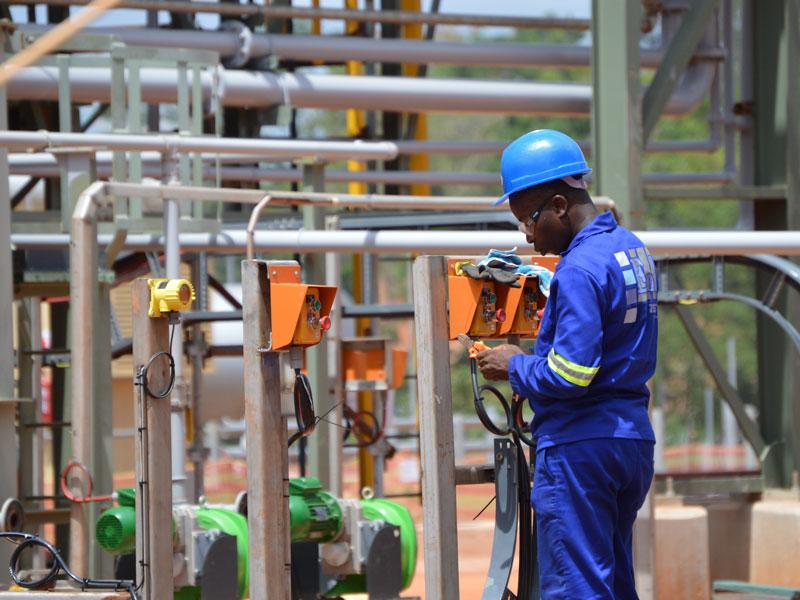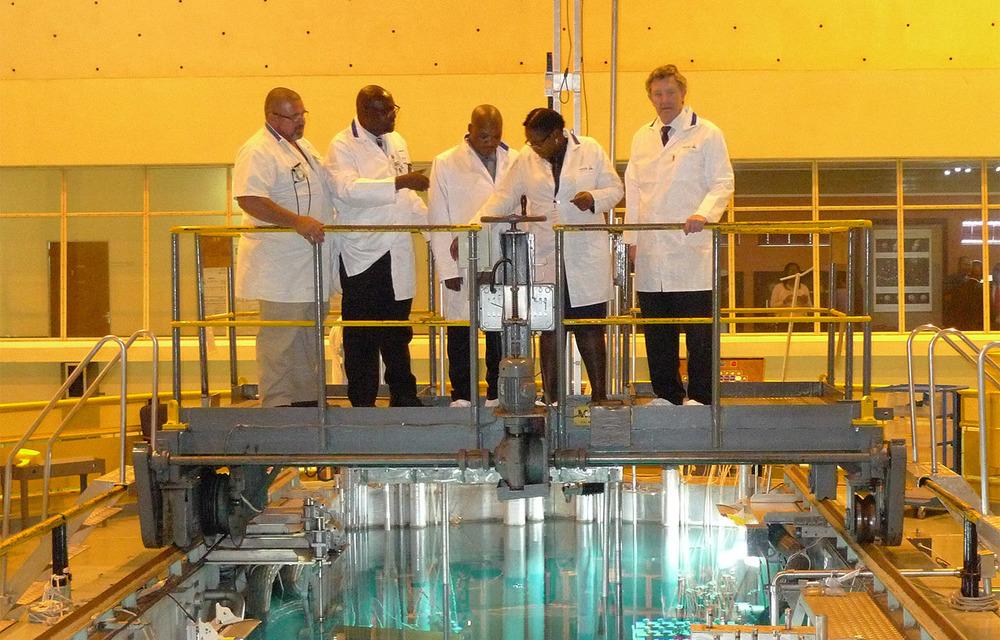Explore Our Bill Payment Services:

- Salary And Allowance
- Engineers Salary
- South Africa
Salary And Allowance Structure Of Electrical Engineers In South Africa
Electrical engineering is one of the most respected and in-demand careers in South Africa. It cuts across industries such as energy, construction, telecommunications, transport, manufacturing, and even finance, making it a versatile field with strong earning potential. However, like most professions, the salary of an electrical engineer is not fixed. Instead, it varies widely depending on several factors such as experience, level of education, specialization, location, and the type of employer.
Annual Averages and Ranges
On average, electrical engineers in South Africa earn between R 374,000 and R 452,000 annually, which works out to roughly R 31,000–R 37,000 per month. These are mid-career averages.
At the lower end, entry-level engineers—those fresh out of university with little or no work experience—may start at around R 140,000 annually (about R 12,000 per month). On the other hand, highly experienced engineers, especially those with postgraduate qualifications such as a master’s degree or PhD, can command salaries well over R 1.2 million annually (more than R 100,000 per month).
In addition to base pay, electrical engineers often receive bonuses, profit-sharing opportunities, or commissions depending on their company’s structure. These additional benefits can push annual compensation to more than R 1.3 million in some cases.
Experience-Based Breakdown
The salary of an electrical engineer follows a clear upward trajectory as they gain more years of experience. For instance:
-
0–2 years of experience: Around R 18,900 per month
-
2–5 years: About R 25,300 per month
-
5–10 years: Roughly R 32,900 per month
-
10–15 years: Around R 39,900 per month
-
15–20 years: Close to R 43,600 per month
-
20+ years: More than R 45,800 per month
This steady rise reflects both the technical expertise and leadership responsibilities that come with seniority.
Gender Pay Gap
Like many other professions, electrical engineering in South Africa is not immune to the gender pay gap. Male engineers typically earn about 8% more than their female counterparts. While the difference is not as wide as in some other industries, it still highlights the need for ongoing efforts toward pay equity and career advancement opportunities for women in engineering.
Key Drivers of Salary Variation
Electrical engineering salaries are shaped by several key factors beyond years of experience.
Education and Specialization
Education plays a critical role in determining earning potential. An engineer with just a bachelor’s degree may start on a decent salary, but those who pursue a master’s degree or PhD often climb the salary ladder faster. For example, engineers with postgraduate qualifications can earn upwards of R 600,000 annually, putting them on par with or even above senior engineers with only undergraduate degrees.
Specialized skills also matter. Electrical engineers with expertise in project management earn more than those with generalist skills. Similarly, proficiency in engineering design software, automation systems, or troubleshooting complex networks can make an engineer more valuable to employers and translate into higher pay.
Industry and Employer Type
The sector where an engineer works is another major factor. Some industries pay significantly more than others due to the technical complexity and scale of projects. High-paying industries include:
-
Energy and Power Generation (including renewable energy)
-
Mining and Heavy Industry
-
Telecommunications
-
Engineering Consulting
-
Large-scale Manufacturing
Working for big-name companies, particularly in the energy and industrial sectors, often comes with higher salaries. For example, national power utilities, multinational corporations, and major engineering consultancies typically offer better pay compared to smaller local firms.
Geographic Location
Location strongly affects salary as well. Engineers working in large urban centers like Johannesburg, Sandton, and Pretoria tend to earn more because of higher demand and the concentration of major companies. Monthly averages in Sandton, for instance, can reach around R 70,000, while engineers in Cape Town may earn closer to R 45,000. Cost of living differences also influence these disparities.
Freelance and Consulting Work
Some engineers choose to work as independent consultants rather than full-time employees. Freelance electrical engineers can charge between R 500 and R 2,000 per hour, depending on their expertise and reputation. Over the course of a year, this can translate to annual earnings of R 1 million to over R 3 million, particularly if they secure long-term contracts with corporate clients.
Allowances, Bonuses, and Perks
In South Africa, the base salary of an electrical engineer is often just one part of the overall compensation package. Many companies provide additional allowances, bonuses, and perks that enhance the total value.
Bonus and Incentive Structures
Around half of all electrical engineers receive bonuses each year. These bonuses typically fall between 3% and 5% of annual salary, though some companies pay more, particularly if an engineer’s role directly impacts revenue or cost savings. Bonuses may be based on:
-
Individual performance reviews
-
Company profits
-
Achievement of project goals
-
Holiday or year-end incentives
The other half of engineers, however, report not receiving any form of annual bonus, highlighting a divide between different employer types.
Salary Increments
On average, electrical engineers in South Africa enjoy salary increases of about 7% per year, which works out to 11% every 19 months. While this may not seem dramatic, steady growth combined with promotions ensures long-term financial progress.
Fringe Benefits
Most medium-to-large firms provide fringe benefits alongside salaries. These can include:
-
Medical aid and health insurance
-
Transport allowances or company vehicles
-
Housing or rental allowances
-
Retirement contributions (pension or provident fund)
-
Study and professional development support
-
Remote work or flexible schedules (increasingly popular post-pandemic)
-
Life or disability insurance
These allowances can make a significant difference in an engineer’s overall financial security and quality of life.
Freelance / Consulting Benefits
While freelance engineers don’t usually receive structured allowances, their ability to set high hourly rates means they often out-earn salaried employees. Flexibility, independence, and the ability to choose projects are additional non-financial perks of consulting.
Sample Monthly Salary Breakdown
Here’s a simplified look at how monthly salaries and allowances break down by career stage:
| Career Stage | Monthly Base Salary | Add-ons & Benefits |
|---|---|---|
| Entry-Level (0–2 yrs) | R 18,900 – R 25,300 | Minimal bonuses; basic benefits |
| Mid-Level (5–10 yrs) | R 32,900 – R 37,720 | Bonuses (3–5%); health and retirement benefits |
| Senior (10–20 yrs) | R 43,600 – R 57,530 | Larger bonuses, leadership perks, full benefits |
| Highly Specialized / PhD | R 50,000 – R 100,000+ | Top-tier bonuses, consulting or academic incentives |
| Freelance / Consultant | R 40,000 – R 100,000+ | Hourly rates; flexible perks; project-based income |
Broader Trends and Career Outlook
The salary and allowance structure of electrical engineers in South Africa continues to evolve due to several key trends:
-
Renewable Energy Boom: The demand for engineers in solar, wind, and hydroelectric power projects is pushing salaries upward.
-
Automation and Robotics: Engineers with skills in smart systems, industrial automation, and IoT are commanding premium pay.
-
Infrastructure Development: Ongoing public and private infrastructure projects sustain steady demand.
-
Professional Registration: Registration with bodies like the Engineering Council of South Africa (ECSA) or the South African Institute of Electrical Engineers (SAIEE) enhances credibility and earning potential.
-
Global Competition: Many South African engineers are recruited for international projects, which increases the overall value of their skills at home.
Final Thoughts and Recommendations
For anyone considering a career in electrical engineering in South Africa, the financial outlook is highly encouraging. Here are some practical takeaways:
-
Early Career (0–5 years): Expect salaries in the region of R 19,000–25,000 per month. The focus should be on building technical experience, gaining exposure to different industries, and securing professional registration.
-
Mid-Career (5–10 years): Salaries grow to around R 33,000–38,000 per month. This is the stage to develop leadership skills, specialize in high-demand areas like renewable energy or project management, and aim for supervisory roles.
-
Senior & Specialized (10+ years): Engineers can earn between R 45,000–60,000+ monthly. With advanced qualifications or niche expertise, annual pay can exceed R 800,000.
-
Consulting & Freelancing: The most lucrative option for highly skilled engineers. By charging hourly rates, consultants can earn anywhere from R 1 million to over R 3 million annually.
-
Don’t Overlook Benefits: Medical cover, retirement contributions, transport allowances, and bonuses can add thousands of rands to your total package each year.
-
Geography Matters: Engineers working in Johannesburg or Pretoria usually earn more than those in smaller towns, though cost of living should also be factored in.
-
Upskilling is Key: Regularly updating your skills—especially in renewable energy, automation, and smart systems—ensures long-term career growth.
Conclusion
Electrical engineering remains one of the most rewarding careers in South Africa. Entry-level engineers start at R 19,000–25,000 per month, mid-career professionals move up to R 33,000–38,000, while senior engineers and specialists earn R 45,000–60,000+. Consultants and freelancers can exceed R 100,000 per month depending on workload.
Beyond base salaries, allowances and bonuses significantly enhance overall earnings. Benefits like health insurance, retirement plans, and performance incentives make the profession financially stable.
With continuous growth in sectors such as renewable energy, automation, and infrastructure development, demand for electrical engineers is only expected to rise. For young graduates and seasoned professionals alike, the career offers not just financial stability but also opportunities to contribute to South Africa’s economic and technological future.









